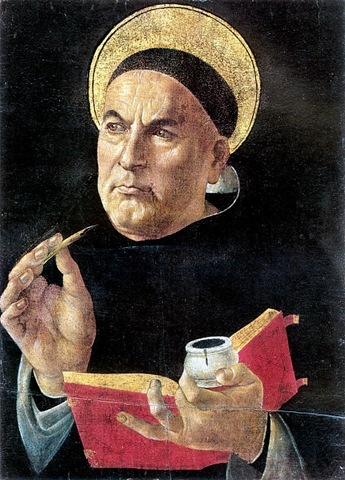De las alegorías a las novelas
 Monday, November 25, 2013 at 13:35
Monday, November 25, 2013 at 13:35 An essay ("From allegories to novels") by this Argentine. You can read the original in this collection.
 For all of us, an allegory is an aesthetic error. (I had initially planned to write, "is nothing if not an aesthetic error," until I realized that my thought comprised an allegory.) As far as I know, the genre of allegory has been analyzed by Schopenhauer (Die Welt als Wille und Vorstellung, I, 50), by De Quincey (Writings, XI, 198), by Francesco De Sanctís (Storia della letteratura italiana, VII), by Croce (Estetica, 39) and by Chesterton (G. F. Watts, 83); in this essay I will limit myself to the latter two. Croce denies allegory's art; Chesterton vindicates it. I suspect Croce is correct; yet I would like to know how a form which seems to us so unjustifiable could have found so much favor.
For all of us, an allegory is an aesthetic error. (I had initially planned to write, "is nothing if not an aesthetic error," until I realized that my thought comprised an allegory.) As far as I know, the genre of allegory has been analyzed by Schopenhauer (Die Welt als Wille und Vorstellung, I, 50), by De Quincey (Writings, XI, 198), by Francesco De Sanctís (Storia della letteratura italiana, VII), by Croce (Estetica, 39) and by Chesterton (G. F. Watts, 83); in this essay I will limit myself to the latter two. Croce denies allegory's art; Chesterton vindicates it. I suspect Croce is correct; yet I would like to know how a form which seems to us so unjustifiable could have found so much favor.
Croce's words are transparent enough that it suffices merely to repeat them: "If a symbol is imagined to be inseparable from artistic intuition, it must be a synonym of that same intuition, which is always of an ideal character. If, however, a symbol is imagined to be separable – if it can represent both the symbol and what is symbolized – it devolves into an intellectual error. The supposed symbol is the exposition of an abstract concept: it is an allegory, it is knowledge, or it is art which replicates knowledge. Yet we must be fair with the allegorical and admit that in certain cases it is quite innocuous. Some morality may be derived from Jerusalem Delivered; from Adonis by Marino, a decadent poet, we may come to understand that immeasurable pleasure may end in pain; and before a statue a sculptor may place a plaque stating that this work embodies Clemency or Goodness. These are allegories appended to a finished work, and they do it no harm. They are expressions intrinsically added to other expressions. To Tasso's Jerusalem, an appended page of prose proffers some of the poet's other thoughts; a verse or a stanza added to Adonis contains what the poet wishes us to understand; and by the statue we find inscribed the word clemency or goodness." On page 222 of his book Poetry (Barí, 1946), Croce's tone is far more hostile: "An allegory is not a direct means of intellectual expression, but rather a coincidence of writing and cryptography."
Croce does not admit of any difference between content and form. The former is the latter, and the latter the former. To him, an allegory seems monstrous because it aspires to two contents in a single form: the immediate or literal (Dante, guided by Vergil, finds Beatrice), and the figurative (guided by reason, a man finally finds faith). Croce deems this manner of writing rife with laborious enigmas.
To champion the allegorical, Chesterton begins by refuting that language exhausts the expression of reality:
[Man] knows that there are in the soul tints more bewildering, more numberless, and more nameless than the colours of an autumn forest; he knows that there are abroad in the world, and doing strange and terrible service in it, crimes that have never been condemned and virtues that have never been christened. Yet he seriously believes that these things can, every one of them, in all their tones and semi-tones, in all their blends and unions, be accurately represented by an arbitrary system of grunts and squeals. He believes that an ordinary civilized stockbroker can really produce out of his own inside noises which denote all the mysteries of memory and all the agonies of desire.
With language now declared insufficient, there is room for other means of expression; allegory may be one of these means, like architecture or music. Formed out of words, it is not a language of language, a sign of other signs of brave virtue and secret illuminations which indicate this word. A sign more precise than a monosyllable, richer and more apt.
I do not know for sure which of the eminent debaters is right; what I do know is that allegorical art once seemed charming (the labyrinthine Roman de la Rose, extant in two hundred manuscripts, comprising twenty-four thousand verses) and now seems intolerable. In addition to being intolerable, we find it stupid and frivolous. Neither Dante, who recreated the history of his passion in La Vita nuova, nor Boethius the Roman, composing in a tower in Pavia, in the shadow of his executioner's sword, his Consolation of Philosophy, would have understood this sentiment. How then is one to explain this discord without resorting to a begging of the question about fluctuating tastes?
Coleridge observes that all men are born either Aristotelians or Platonists. The latter suspect that ideas are realities; the former, that they are generalizations; for the former, language is nothing if not a system of arbitrary signs; for the latter, it is a map to the universe. The Platonist knows that the universe is in some way a cosmos, an order; this order, for the Aristotelian may be an error or a fiction of our imperfect knowledge. Through every latitude and era, these two immortal antagonists have changed dialects and number: the first may be Parmenides, Plato, Spinoza, Kant, or Francis Bailey; the other, Heraclitus, Aristotle, Locke, Hume, or William James. In the arduous schools of the Middle Ages, everyone hailed Aristotle as the master of human reason (Convivio, IV, 2), yet the nominalists were Aristotle, and the realists, Plato. George Henry Lewes believed that the only medieval debate of any philosophical value was that between nominalism and realism. A bold judgment, if one that enhances the importance of this vivid controversy more than some maxim by Porphyry, put forth and commented on by Boethius, provoked at the beginning of the ninth century, which Anselm and Roscellinus reaffirmed at the end of the eleventh, and which William of Occam revived in the fourteenth.
As one might suspect, all these years multiplied towards infinity the number of intermediary positions and distinctions. Nevertheless, one should assert that for realism the primordial element was the universal (Plato would say it was ideas and forms; we would say abstract concepts), and for nominalism, individuals. The history of philosophy is not a vain museum of distractions and verbal games; it is far more likely that these two theses correspond to the two ways in which to sense reality. Maurice de Wulf writes: "Ultrarealism took into account the initial adhesions. The eleventh-century chronicler Hériman of Tournai referred to those who taught dialectics in re as antiqui doctores; Abelard spoke of this as ancient doctrine (antigua doctrina), and until the end of the twelfth century, labeled his adversaries as moderni." A thesis now inconceivable appeared evident in the ninth century and persisted in some form until the fourteenth. Nominalism, before the novelty of very few, now included everyone; its victory was so vast and fundamental that its number was useless. No one declared himself to be a nominalist because there was no one who was anything else. We must try to understand, nonetheless, that for the men of the Middle Ages the most important thing was not men but humanity; not individuals, but the species; not the species, but the genus; not the genera, but God.
In my understanding, it was from such concepts (the clearest manifestation of which is perhaps Eriguena's four divisions of nature) that allegorical literature emerged. It is the tale of abstractions, like the novel is the story of individuals; the abstractions are simply personified. For that reason, in every allegory there is something novelistic. The individuals whom novelists put forth aspire to generic roles (Dupin is reason; Don Segundo Sombra is the gaucho); in novels there is an allegorical element.
The passage from allegory to novel, from species to individuals, from realism to nominalism, took several centuries, but I venture to suggest an ideal date. That day in 1382 on which Geoffrey Chaucer, who perhaps did not believe himself to be a nominalist, wanted to translate into English that verse of Boccacio's, "E con gli occulti ferri i Tradimenti" ("and treacheries with hidden irons"), and repeated it in this way: "The smyler with the knyf under the cloke." The original was in the seventh book of the Teseida; Chaucer's version in The Knightes Tale.





